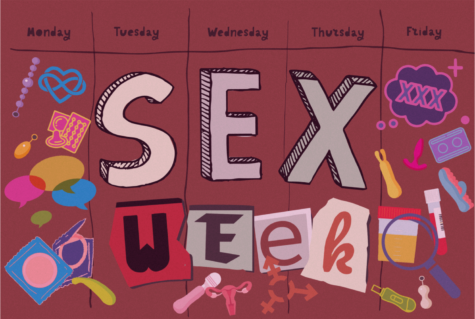OPINION | Let’s talk sex positivity, sex week at Tulane

While the topics of sex and sexuality may be considered taboo, sex is prevalent in the lives of college students. About 69-75% of college students have engaged in a “hook-up” — a range of sexual acts, from kissing to sex. But when talking about sex and hookup culture at Tulane University, it is also important to explore the concept of sex positivity, which is the idea that people should be encouraged to explore their gender and sexuality, free of judgment.
But why is it so important to talk about sex in an open and positive way?
Studies show that among sexually active adults ages 18-19, only 40% report consistently and properly using protection. This data is alarming, considering the significant population of sexually active college students. In many cases, there are limited safe spaces on campuses to ask questions about protection, risks of unprotected sex or even questions about sexual acts themselves.
Currently, only 39 of 50 states mandate sex education in schools. There are 19 topics to be covered in comprehensive sex education. 40.2% of New Mexico middle schools — the highest percentage nationally — cover every topic, and 84.4% of New Jersey high schools — also the highest percentage nationally — cover out of all states. On a national level, only about half of Americans are receiving sex education that meets the standards of Healthy People 2030.
A stigma accompanies sexual activity, especially among people who identify as women. Research shows that sexually active female-identifying individuals are more likely to be negatively impacted by the shame surrounding sex or experience a sense of guilt for their sexuality.
In addition, there is little representation of LGBTQ+ people in conversations surrounding sex and sexual practices. Sexuality and gender are both fluid, and this fluidity is often not accounted for in discussions surrounding sex — whether this is in formal academic discourse or conversations in mainstream media. Most sex education is aimed towards those engaging in heterosexual sex, so there is less room to discuss LGBTQ+ identity and sex.
Sex is intersectional, and people of all identities can choose to engage in it. Racial and ethnic differences can impact a person’s sexual encounters. For example, Black youth are at higher risk for HIV and STIs than their white counterparts. Also, disadvantaged minority groups are more likely to have a lower level of sexual literacy — a general understanding of different issues pertaining to sex.
Sex positivity strives to foster conversations about all aspects of sex and acknowledge the intersectionality that comes with topics of sex and sexuality. Tulane students come from a variety of backgrounds, so it is essential to offer a space where everybody feels included in these conversations.
Sex Week, happening from March 13-17, offers a variety of events that educate students about sexual health and other sex-related topics while also discussing how identity impacts sexuality. This year, Sex Week events include sex trivia for LGBQ+ students of color, conversations about healthy relationships, exploring asexuality/polyamoury, safe sex supply giveaways, panels with sex educators and more.
Sex Week includes an array of interactive and unique programs while also touching on serious topics like sexual health, pleasure, healthy relationships, exploring sexuality, etc. This event offers an opportunity to embrace the uncomfortable and learn more about sexuality.
Overall, sex positivity is necessary to foster conversations that might otherwise be taboo, and to encourage students to learn more about an activity they are likely already engaged in.
Your donation will support the student journalists of Tulane University. Your contribution will allow us to purchase equipment and cover our annual website hosting costs.


